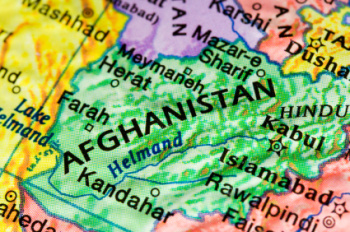The two candidates in Afghanistan’s presidential run-off have finally reached a settlement, proving widespread corruption and ballot-rigging isn’t an obstacle to claiming a “successful” election was held.
 Under the deal, Ashraf Ghani will be named president, and Abdullah Abdullah will be given the position of “chief executive,” a new position which was created specifically so neither candidate lost. Both positions are designed to be roughly equivalent in power, but it isn’t clear how the split will ultimately be.
Under the deal, Ashraf Ghani will be named president, and Abdullah Abdullah will be given the position of “chief executive,” a new position which was created specifically so neither candidate lost. Both positions are designed to be roughly equivalent in power, but it isn’t clear how the split will ultimately be.
How the results will be released is unclear either, as Abdullah, believed to be trailing in the vote audit, had made a key demand of the power-sharing that the election commission either release results without actual vote numbers or, by contrast, release phony numbers that made the race look closer than it actually was.
The Abdullah camp had released considerable evidence of ballot stuffing being done by the commission itself on behalf of the Ghani campaign, and the two sides couldn’t agree on how the audit would be carried out, meaning the vote was months ago and the results are still unclear.
Ghani has agreed to power-sharing frameworks in the past, but has also ruled out actually complying with those deals, saying that once the audit confirms his victory he’s free to do as he pleases. How that was resolved, as with other terms of the agreement, was not made public.


